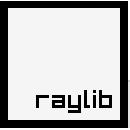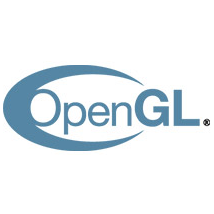
Kivy
Kivy 2.3.1 is an open-source Python framework designed for app development across multiple platforms, including Android, iOS, Linux, macOS, and Windows. With its user-friendly interface and a single codebase, developers can efficiently create applications. Supported by both individuals and organizations, Kivy thrives on community contributions under the MIT License.
Top Kivy Alternatives
RPG Maker VX Ace
RPG Maker VX Ace empowers creators with a blend of simplicity and sophistication.
Flixel
Flixel is a versatile game development software that allows creators to explore the auto-runner genre, initially popularized with its silly demo game.
XSplit Broadcaster
XSplit Broadcaster empowers users to create high-quality video content effortlessly...
Nebula Device
The Nebula Device is a powerful real-time 3D game and visualization engine, crafted in C++.
Unreal Engine
The world’s most advanced real-time 3D creation tool enables users to craft stunning experiences effortlessly.
Object Oriented Input System
The Object Oriented Input System (OIS) offers a versatile, cross-platform solution for integrating various input devices such as keyboards, mice, and joysticks.
raylib
With minimalistic design, it offers essential functionality through a cheat sheet and extensive examples, enabling...
Ren'Py
With an intuitive scripting language for large narratives and Python support for intricate simulations, it...
BINK
With lightning-fast performance, it supports 4K playback across multiple platforms, including PC and consoles...
Allegro library
It simplifies essential tasks such as window creation, user input management, data loading, image rendering...
Cocos2d-X
It is entirely open-source and cross-platform and is regularly updated to handle new gaming and...
Urho3D
Developed under the MIT license, it encourages community feedback and active contributions, led by Lasse...
SoLoud
It simplifies the playback of sound effects with a "fire and forget" approach, allowing developers...
OpenDDL
It caters to needs ranging from simple configuration files to intricate data transfers between programs...
Kivy Review and Overview
Kivy is an open-sourced Python library that can be used by any organization or users to develop interactive applications without going through the trouble of coding each element and pixel by themselves. It is known for its affordability and compatibility across all the major platforms.
Development for everyone
When businesses plan to develop applications or games using any library, the first problem they have to face is the license restrictions. And even if there are free and open-sourced libraries, they are very unprofessional and messy for most parts. This is where Kivy helps out users. It is open-sourced, and therefore, not only free to use, but it also improves from time to time as per the courtesy of user feedback. There are no restrictions on utilizing it in a commercial product. Adding to this, the framework is stable as well and comes with a manual to help users get started.
When developing applications using any library, another issue that users often face is regarding the operating system. Most libraries are designed to work on a particular OS. They do not support another system, which can cause problems when working with a team where users prefer different operating systems. Kivy doesn’t budge with this issue as well and allows users to access its services from Windows, Linux, macOS, Android, iOS, and even the Raspberry Pi! Moreover, the library is designed in a way that it can smoothly utilize the majority of the protocols, devices, and inputs like a multi-touch mouse, OS X trackpad, Linux Kernel HID, etc.
Turn on the Graphics
When developing a game or an application that involves stunning visuals or a lot of art, it is necessary to have a library that has a good graphics engine, as it makes all the visual work smooth. Kivy’s graphic engine is developed over the famous OpenGL ES 2 that makes sure that all the development involving graphics gets handled seamlessly. The GPU toolkit comprises of several highly extensible widgets and undergone regression tests, making the Kivy GPU one of the most reliable and high standard library GPUs out there.
The best applications need the best code library so that there are no bugs and issues, while developers have an easy time as well. Kivy is a perfect tool for this purpose.
Top Kivy Features
- Cross-platform deployment
- Single codebase support
- Open source under MIT
- Community-driven development
- Professionally maintained framework
- User-friendly API
- Extensive documentation available
- Active development community
- Mobile and desktop compatibility
- Rich set of UI components
- Customizable graphics and animations
- Touch support for mobile devices
- Built-in multitouch support
- Easy to integrate with Python
- Support for modern hardware
- Regular updates and releases
- Strong contributor network
- Easily scalable applications
- Fast performance optimizations
- Large number of stars on GitHub














